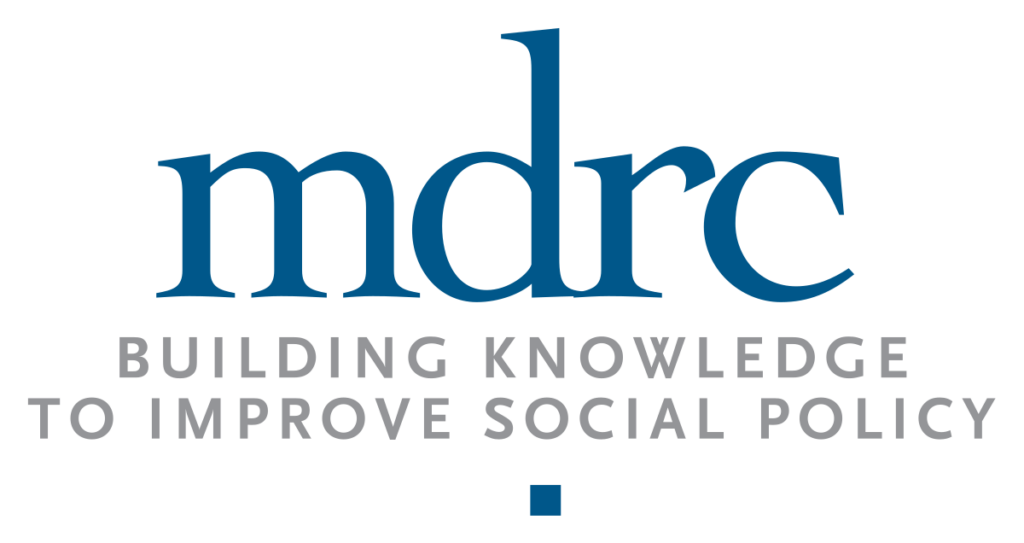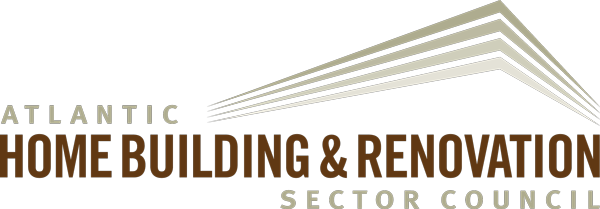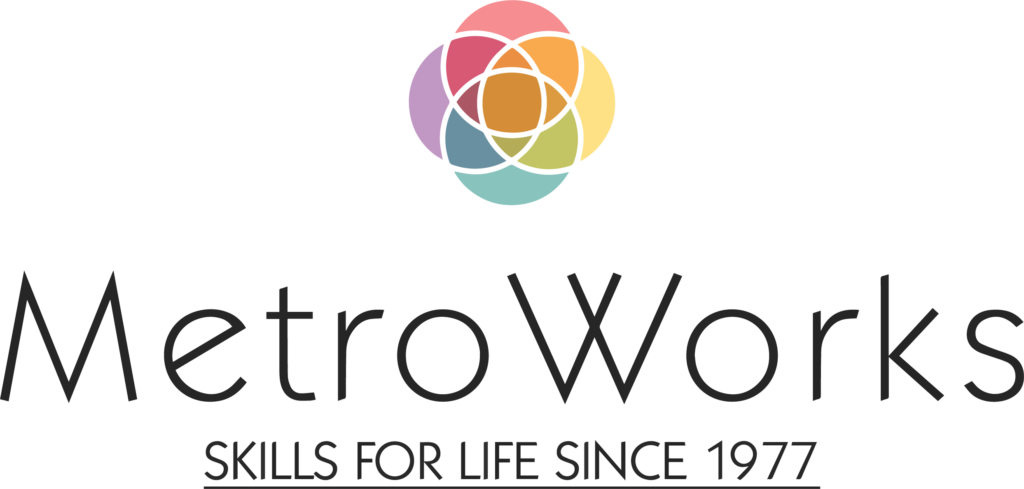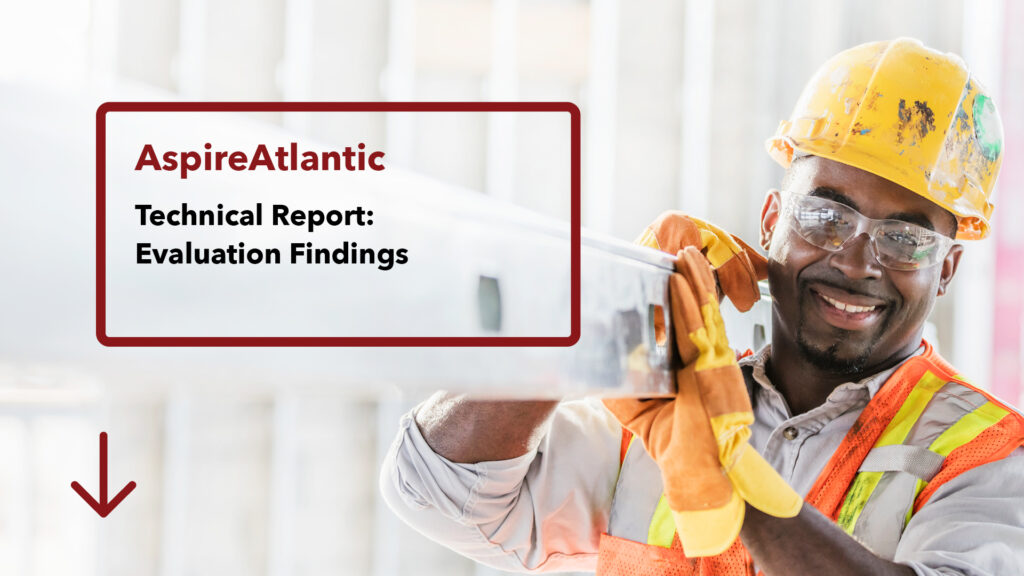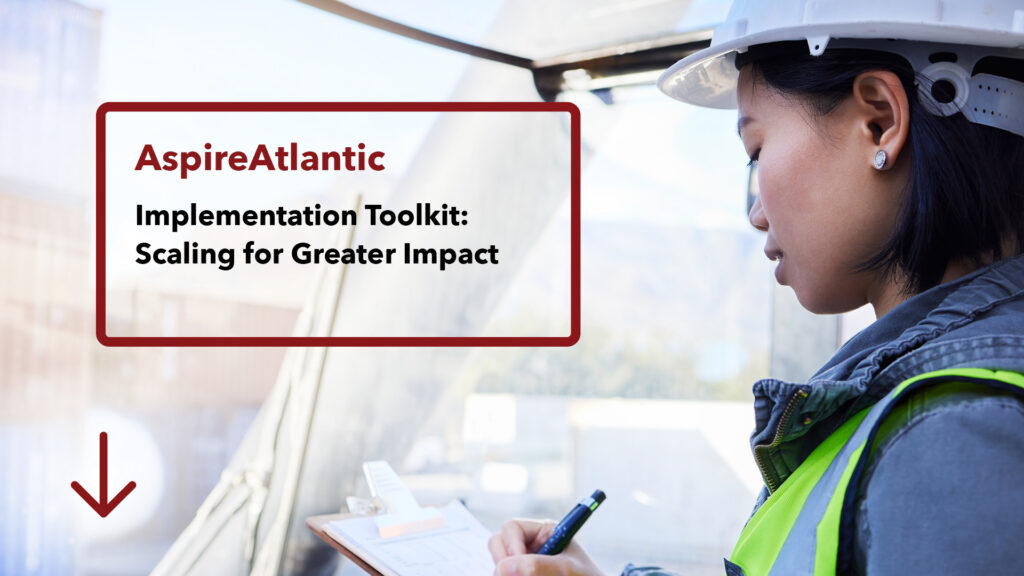
The Challenge
Atlantic Canada has long experienced hardships in the labour market compared to the rest of the country. The work to recruit, retain, and train more people in the skilled trades is critical to how we’ll tackle the challenges facing housing, healthcare, and infrastructure in Atlantic Canada.
Experiencing unemployment or underemployment can have a significant influence on a person’s socioeconomic status and overall well-being, as well as direct and indirect impacts on communities.
In 2019 the unemployment rate in Nova Scotia was 7.4% compared to 5.7% nationally. And, at the same time, 40% of employers across all sectors in Atlantic Canada said they expected to face challenges in finding skilled workers in the coming years.
There is a need for new interventions that grow candidate pools for employers while addressing the needs of job seekers. Traditional employment models have had some success across Canada, but an evident gap in Nova Scotia’s employment services remains.
Enter, AspireAtlantic.
AspireAtlantic extends beyond employment programming and provides an evidence-based workforce development model that focused on sector-specific training, retention, and advancement. This model was adapted from MDRC’s WorkAdvance Model, which demonstrated success in sector-based employment programming in the United States—and was tailored to work in Nova Scotia and adapted for regional and cultural nuance.
The Approach
This project began with a 9-month phase to identify the necessary adaptations of the model for implementation in Atlantic Canada. From an environmental scan, we determined that both job seekers and businesses would benefit from more specific employment programming that prioritized not just sector-specific skill building, but also provided personalized wraparound supports to address the needs of disproportionately unemployed groups.
Pier Labs worked in partnership with organizations who were experts in the areas of construction and manufacturing that shared our vision for innovation in employment services. This included sector councils, sector-specific organizations, and employment service provider organizations—all of whom helped to test and refine how this new model could integrate into the Nova Scotian employment ecosystem.
Enthusiastic cohorts of job seekers looking for employment in construction or manufacturing began training in 2022. They received 8-12 weeks of training that covered technical skills and soft skills to help them at work. Following graduation, they received up to 12 months of continued support from the AspireAtlantic team to facilitate their longer-term success and career advancement.
8
cohorts of participants
3
high-demand industries
15
months
The Outcome
Through the AspireAtlantic demonstration study, we see early evidence that employees and employers benefit from sector-based advancement programming. And, it provided training opportunities and a professional community for a diverse group of Nova Scotians.
AspireAtlantic is did not just introduce a new model to the system, it utilizes targeted intervention strategies to increase the likelihood of success for job seekers, employers, and sectors.
In a time of significant economic disruption and opportunity, innovative approaches in employment programming are an imperative for the growth of the Atlantic region and the Canadian economy. AspireAtlantic has a strong focus on knowledge dissemination amongst practitioners. Our goal is for the learnings and outcomes of AspireAtlantic to extend beyond the project—the longer-term integration of this innovative model into existing workforce development training programs can strengthen our employment landscape and our communities.
One of our core competencies at Innovasea is ‘acoustic transmission of information’ or, sending information underwater in the same way sound travels in air. This often includes clicks, beeps, and other audible sounds. Through the AspireAtlantic program, we hired our first deaf person and it challenged us to think about if these elements were necessary and to find solutions that make our roles more accessible so we can provide equitable employment and opportunities to different kinds of people.
—Ian Coolen, Director of Production at Innovasea
Project Publications
We are thrilled to share the final reports from the AspireAtlantic project. The Technical Report summarizes research and evaluation findings and the Implementation Toolkit is designed to support sectors and regions who need of skilled labour in implementing and scaling the model swiftly and effectively:
The Impact
AspireAtlantic graduates felt that the program opened doors that otherwise would have remained closed for them. The program helped to provide direction to the 88 program alumni. 71% of participants reported having job interviews within two months of graduating. Some were even achieving advancement goals less than a year after securing a job! The program gave graduates more knowledge, increased their confidence, and helped them build connections. For many, this resulted in finding meaningful employment. This is only the beginning for them, as the goal of AspireAtlantic was to help people build a foundation from which they can shape a career.
AspireAtlantic helped to provide a pool of skilled candidates to employers in construction and manufacturing. Employers shared that AspireAtlantic candidates seemed prepared for the work required in their sector and saw promise in their development. In addition, sector organizations who collaborated with us saw the value in this model, with some considering how lessons learned may influence their operations.
It got me the exact result that I need. I have been trying to get a job in the construction field for over a year. I have been preaching it to colleagues, it gives you a foot in the door.”
—AspireAtlantic Graduate
The Opportunity
AspireAtlantic has the potential to strengthen employment services in Nova Scotia by helping job seekers build careers in high-growth. The success of the program serves as an example of what thoughtfully developed programming that is evidence-based and relationship-centered can do for job seekers, employers, and our region.
70%
of graduates are employed, starting a business, or pursuing studies
93%
program and training completion rate
Project Funders:
AspireAtlantic is funded by the Government of Canada’s Future Skills Centre and the NS Department of Labour, Skills, and Immigration


Project Partners:
